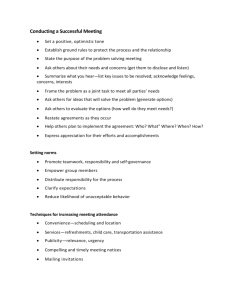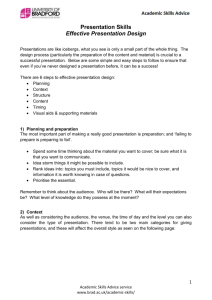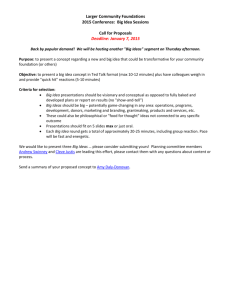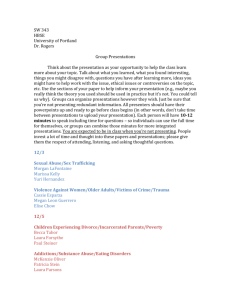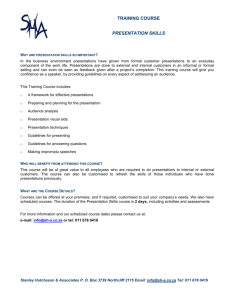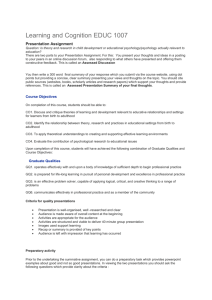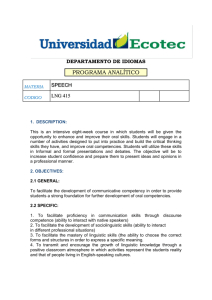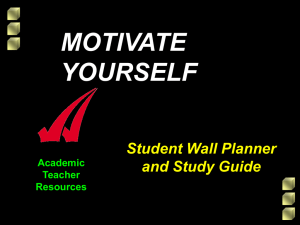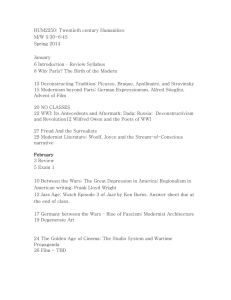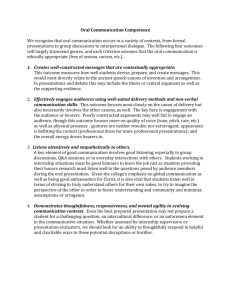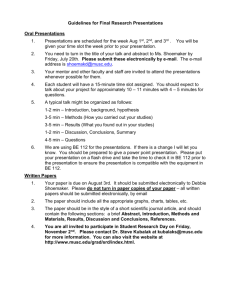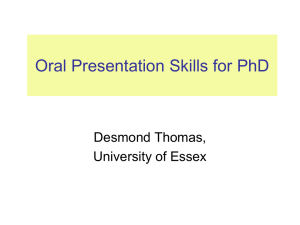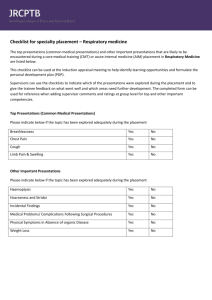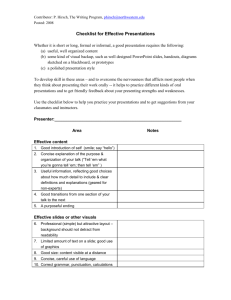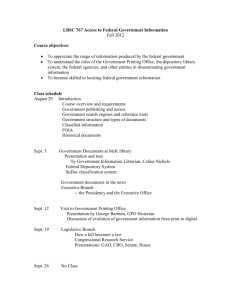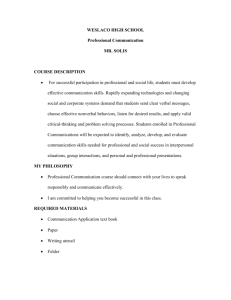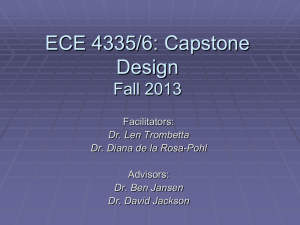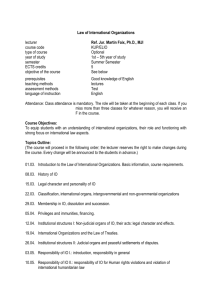PPT - BETA | IATEFL Affiliate
advertisement
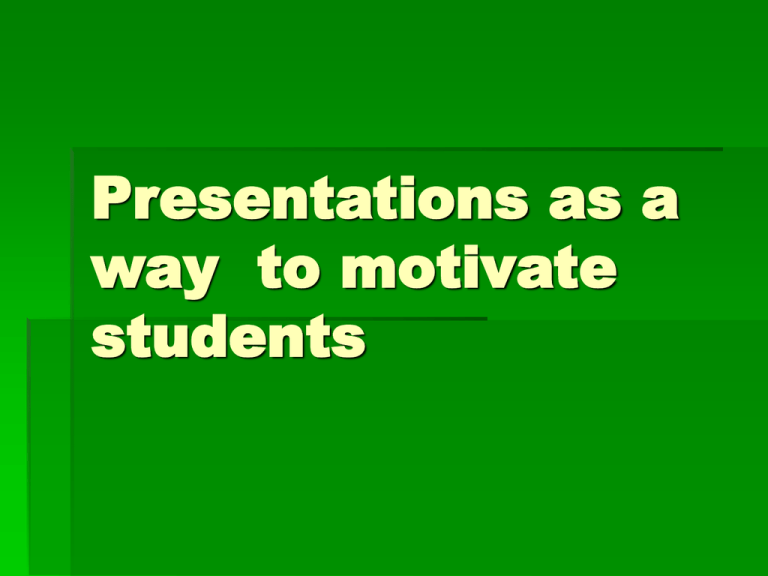
Presentations as a way to motivate students How did it all start? ► As a result of trying to figure out a way to rivet their attention and make more practical sense of their English classes! Power point The equipment the students found most desirable and appealing! Age and level of students one should apply it with The presentations one sets should depend on the level, experience and interests of the class. ► 15 to 18- year olds; ► Upper-Intermediate and above How do I go about it? First I prepare the soil: • I sow the seed by explaining and rationalizing. • I ask them to think of a topic. A more thorough preparation ► Choosing the time. ► Giving them a well-structured plan highlighting the major points in a presentation. ► Making a list of the order in which they will present and their topics. Presentations and what we should bear in mind while preparing 1. Principal purpose to inform to entertain to convince to encourage 2. The importance of the audience who will be there; audience reaction ( to be anticipated). 3. Plan your presentation divide it into digestible, clear-cut parts: ╚ one general statement or introduction; ╚ the body of the presentation; ╚ closing statement. give special attention to the power point technicalities ╚ the number of slides ╚ the font, ╚ the background. 4. Prepare/ rehearse There are three important ingredients of each presentation: preparation, preparation, preparation! Be fluent! 5. Delivery and what one should bear in mind: body language: ╚ dress, ╚ posture, ╚ gestures, ╚ eye contact, ╚ facial expression. be relaxed – avoid nervous habits; voice: vary volume, tempo, pitch, rhythm. First stage - going from easy to more difficult Level: 9th grade – Upper-intermediate - students’ topics reflect their hobbies and interests - favorite actor, singer; music, sport etc. - 4 to 8 minutes Second stage – a level more challenging Level: 10 graders – advanced ↔ content and length change correspondingly: a more serious topic, if possible connected with their school subjects: history, geography etc. about 15 to 20 minutes The many-sided effect of students’ presentations Broaden students’ interests, boost their self-esteem They get a sense of achievement; They find out more about each other’s interests; Everybody is given the due credit for his/her success. Heighten their confidence in the usage of English broaden their knowledge of English in a certain field; whole phrases and structures remain fixed in the active stock of their vocabulary. Through presentations they acquire a number of practical skills Communication skills: ►learn how to behave in front of an audience; ► become aware of the importance of body language; Computer skills: ► intensify the process of mastering computer skills, like working with power point; Interpersonal skills Learn to assess their peers while presenting About fair and constructive criticism Criticism versus praise! ‘One compliment is more effective than a thousand critical comments, no matter how well meaning’. Chris Sion in “Talking business in class” Benefits gained from assessing: makes them much more observant; makes them much more critical and self-critical; teaches them the skill of peer assessment; A spin-off: presentations in the classroom diversify the syllabus They bring variety; They make teaching and learning easier and more pleasant! Presented by Margarita Papazova Teacher of English at the Private Business Language School of “Eurostandard”


